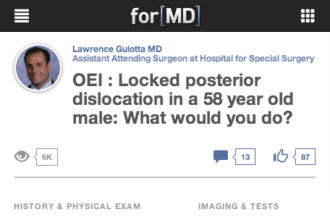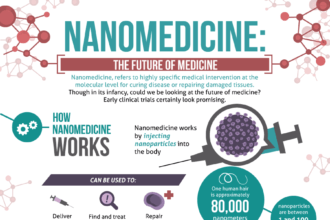American medicine overuses its technologies and innovation triumphs and way underutilizes old fashioned compassion, discussion and good common sense.
American medicine overuses its technologies and innovation triumphs and way underutilizes old fashioned compassion, discussion and good common sense.
Over the three months I have given weekly updates of medical megatrends in the fields of genomics, stem cells, transplantation and vaccines. These advances are the representation of innovations and entrepreneurship in biological, computer and engineering science. They are exciting advances and offer promise of hope for many patients with acute and especially chronic illnesses. It should be clear that I am an unabashed supporter of medical innovation and in the coming weeks I will add posts on advances in medical devices, imaging, the OR and more.
But perhaps it is time to “take a breather” and consider the implications of these advances. One unanticipated and actually unfortunate consequence of medical advances is the belief by provider and patient alike that all disease can be ultimately conquered – that cures can and will be found with enough time and energy. Perhaps this is true but more than likely disease will always be with us. [There is an excellent article on this topic by Daniel Callahan and Sherwin Nuland in the New Republic May 19, 2011.] Given our aging population it is important to remember that “old parts wear out.” And with our penchant for adverse behaviors such as overeating (a non nutritious diet,) sedentary lifestyle, chronic stress and (20% of us) smoking it should be no surprise that we will see epidemics of chronic illnesses such as heart failure, cancer and diabetes along with many others. These are chronic illnesses that remain with us for life, are difficult to manage and are inherently expensive to treat.
So we “cause” our own illnesses and then expect medicine to rescue us with a cure. We remain optimistic that, with enough resources placed into research, the disease will be conquered. And in the meantime, doctors and patients alike expect that our current innovations and technologies will improve our lot. We in medicine, with the urging of our patients, look to deny death – at least for now. We have a new drug for cancer that will add a few months of life but with major side effects while bankrupting the family. We have a new medical device for heart failure that will cheat death for awhile but with limited quality of life.
But sometimes it might be more appropriate to step back and appreciate that the next treatment or diagnostic procedure may offer little of value but cost a lot. We know death is inevitable; just not now, please. Sometimes it is simply more appropriate to accept the inevitability of death.
About this time last year H Brody wrote in the New England Journal of Medicine that physicians needed to take the lead in reducing costs of care. He suggested a number of simple steps that any physician could take without in any way reducing quality of care. He then challenged each medical specialty and subspecialty to come up with its own “Top Five” list. Thomas Smith and Bruce Hilner, medical oncologists, did just that in another NEJM article. They made some excellent recommendations such as not giving chemotherapy to someone who could not walk into the clinic unaided – based on the observation that such patients do not respond well. They also suggested that the use of hematopoietic growth factors (e.g., pegfilgrastim) be used only in situations where the WBC count is way down since the risk of infection is minimal until the neutrophil count drops below about 500/ul. They also suggested earlier use of the palliative care team and much better patient-physician discussion about end of life care. For a review of this paper go to http://bit.ly/ryxj0a
But all of this will require a culture change by physician and patients and their families. It will mean physicians having honest, direct conversations with patients. Patients will need to understand the real pros and cons of a surgical procedure, that new drug or the latest medical device. And then, should the patient opt for palliative care, it will mean that the physician does not turn away from the patient but enters a new, rather profound relationship where quality of life is more important than length of life. It is where both patient and physician accept death with dignity – each growing further from the experience.
I am in no way suggesting rationing or “death panels” nor am I suggesting some form of central bureaucracy limiting choice. But I am suggesting that all of us need to “take a breather” and not be so enamored of our innovative technologies that they become used inappropriately or in excess. Perhaps it would be better said to suggest that patient and doctor together need to embrace the need for openness, transparency and honestly with full discussions of the nature and natural course of a disease and the realistic expectations of embarking on a particular course of treatment. Often the use of one or more new technologies will be the appropriate course of action. But sometimes the correct course will be one marked by comfort measures and the maximization of the quality of life.
This should be one of the new “medical megatrends” – a cultural shift of great importance in medicine and with it improved care of those with chronic illness. I would welcome others’ thoughts on this important issue.
Stephen C Schimpff, MD is an internist, professor of medicine and public policy, former CEO of the University of Maryland Medical Center and consults for the US Army, medical startups and Fortune 500 companies. He is the author of The Future of Medicine – Megatrends in Healthcare. Updates are available at http://medicalmegatrends.blogspot.com







